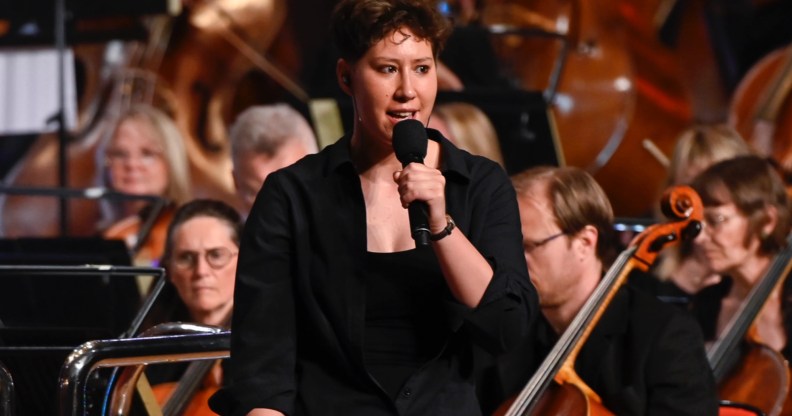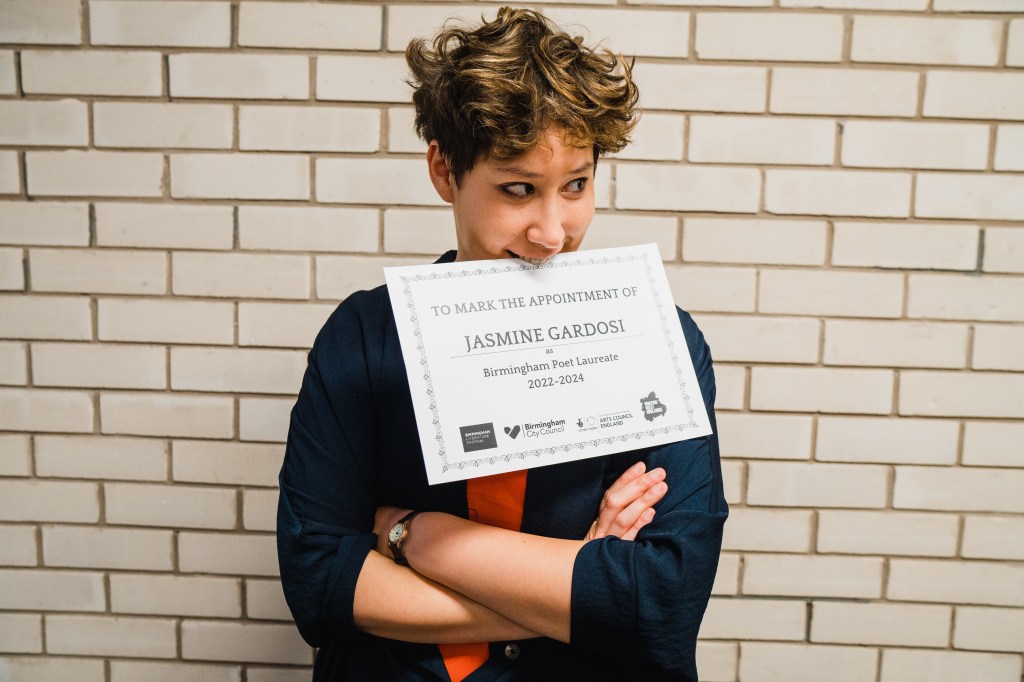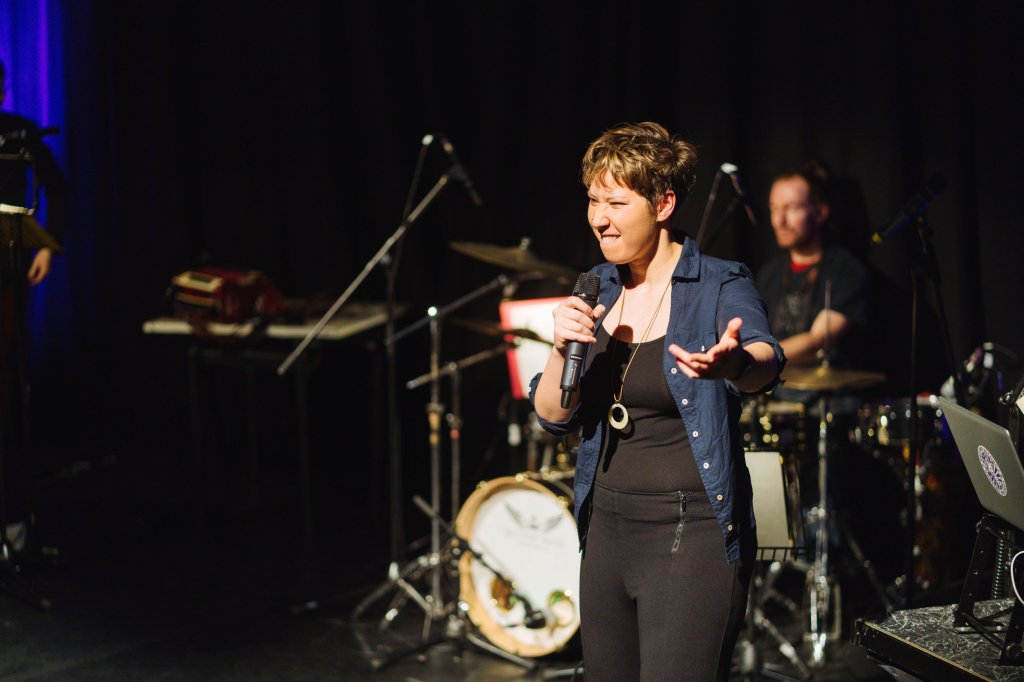Birmingham Poet Laureate Jasmine Gardosi on gender euphoria and breaking binaries in her new show

Birmingham Poet Laureate Jasmine Gardosi performs. (James Watkins)
Birmingham Poet Laureate Jasmine Gardosi performs. (James Watkins)
Three months after being named Birmingham Poet Laureate, spoken word artist Jasmine Gardosi is breaking boundaries once more with a powerful new show about gender identity.
Last October, the award-winning writer and LGBTQ+ activist was handed the prestigious title during a National Poetry Day celebration, marking the start of an ambassadorial role to help raise the profile of poetry across Birmingham
The appointment, which runs until September 2024, marks a high point in the Gardosi’s career, although her journey might have looked quite different had she not have discovered the “amazing” poetry scene in Birmingham after leaving university.
“There were open-mic nights in pubs and cafes, and in the little cracks of our city,” Gardosi tells PinkNews. “So I started performing, performing more and performing more.”
Ten years, several applications and countless open-mic nights later, Gardosi was finally chosen to represent Birmingham’s poetry scene for a two-year tenure.
Now, she’s passing on her knowledge to the next generation through poetry sessions at her old school – a move that was cathartic given it was the place where she first realised that she didn’t fit in.

“It was terrifying to go back into a school where, as an awkward teenager, it’s a hotbed of all your insecurities,” they admit.
“When I went to school, well over 10 years ago, nobody came out in my year,” they continue. “Section 28 was only just abolished, so there was no infrastructure.”
However, just like many other young people up and down the country, Gardosi slowly broke away from cis-hetero societal norms and, through the medium of poetry, truly discovered herself.
Years down the line, she is trying to reclaim these narratives; and after opening up to students about her girlfriend, who is also a poet, many of her pupils have also found the confidence to speak about their gender identity and sexuality.
“Many have come out to me since, as queer, as gay, as trans, as non-binary, and have told me their pronouns, which is beautiful,” they say.
Gardosi’s ever-expanding poetry repertoire has tackled themes around gender identity and queerness head on. Take “Unidentified Crying Objects”, which is set in a high school where there is “homophobia swirling around the corridors, poisoning the air like toxins.”
“Say It Anyway”, meanwhile, is a searing takedown of the media’s dire portrayal of trans people, using misquoted subtitles to communicate the frustration of being misrepresented.

This month, Gardosi is bringing everything together with an electrifying night of slam poetry at Birmingham’s Symphony Hall. Titled Dancing to Music You Hate, the show sets up a dialogue between Gardosi and a live band of instrumentalists as it explores “the barriers to self expression”.
“I’ve got this beautiful poem called ‘Gender Euphoria’” they say, “which basically offers that gender euphoria applies to everyone. Everyone deserves gender euphoria, whether you’re straight, cis, queer or trans.”
It also explores their own life experiences by turning them on their head. “In one, I’m talking with a saxophone, asking whether I should tell my students that I’m gay or not. And the saxophone says all the things I need to hear.”
Gardosi is keen to emphasise that she has never been in a space that “normalises identities just as they are”, until she found the the Birmingham poetry community.
“Sometimes, I can forget that to the outside world I’m actually a bit of an anomaly,” they explain. “When I’m in those spaces, it’s a place of acceptance.”
And, just as in Gardosi’s classroom and Birmingham’s underground poetry scene, she hopes Dancing to Music You Hate can be a refuge for others souls searching for acceptance.
“I want the audience to rethink the binaries that we live by,” they say. “I want them to feel encouraged, if it’s right and if it’s safe, to offer more of their truth to the people that they love. Because that’s where connection lies.”
As a parting message before she takes to the stage, Gardosi quotes the words of Alok Vaid-Menon, a fellow queer poet challenging the gender binary.
“There are as many ways of being a man as there are men,” she says. “And there [are] as many ways of being a woman as there are women”.
Dancing to Music You Hate hits Birmingham’s Symphony Hall on 24 January.

